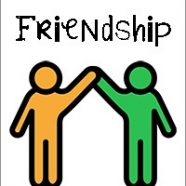
I recently went to my college (Colby) reunion and was reminded of how rewarding it was to reconnect with old friends. Despite our different careers and social lives over the years, we still share the same values and interests. This experience reminded me of the similarities to good branding and also some frustrating dimensions of our political system.
What Friendships And Branding Have In Common
Trusted relationships are the key for friendships and successful brands, where an emotional bond exists between friends and between a brand and its customers. In a recent book, “Friends” by Robin Dunbar, his research concluded that the maximum number of relationships most people can have is around 150, due mainly to cognitive capacity. This is also the average number invited to a wedding or on a Christmas card list. Within this circle are 15 closer friends with whom you often socialize (e.g. going to movies or dinner). Then there are on average 5 very close friends with whom you can provide more emotional support when needed. During adulthood, about 30 friendships break up with new ones replacing them.
The basis for such friendships consists of the things you have in common – e.g. musical tastes, political opinions, professions, world views or a sense of humor. These values are similar to the fundamental characteristics of a brand identity. Smart marketers build a personality for a brand which the consumer can feel comfortable with. In short, both friendships and brands are built on a relationship of trust, credibility, empathy and common interests.
Responsiveness Is Different In Politics
While the process for forming relationships with friends or brands is understandable and straightforward, the direct line between politicians and his/her constituents is clouded with other influences. Ideally politicians should represent the voters, listen to their preferences and with their expertise added, develop legislation that responds to their desires. In the U.S., this relationship building process is more often affected by the obsession of politicians to build and retain power (e.g. holding on to their office). Unfortunately other minority subsets of their audience have a greater impact – e.g. large donors, political party leaders, and the polarizing extremes of passionate activist voters (e.g. the far right or left).
The result is that many politicians are more responsive to these specialty groups, even if their votes on issues are inconsistent with the wishes of most of their constituents (e.g. witness gun control, abortion, and loyalty to party over public interests). Here are some examples of how politicians are more influenced by these minority groups to stay in power:
- Texas has about 30 million voters, where roughly 17 million are registered to vote in the primaries, but only 2 million actually voted in the past two Republican primaries. Most of them are older, white and far to the right, so it makes sense to focus primarily on this subset to retain power. The result is that the choices of these politicians don’t always accurately reflect the desires of the majority of voters.
- The glaring influence of big donors was never more evident than the steadfast resistance of Republican politicians for new gun safety legislation after the Uvalde slaughter. The N.R.A. has dominated many politicians, topped off by $7 million career funding to Richard Butt from N.C. and $4.6 million to Roy Blunt from MO. These contributions are like bribes that help keep them in power, despite the overwhelming majority of voters wanting stronger gun laws.
- In light of the Uvalde and Buffalo shooting, the Congressman from a Buffalo district (Chris Jacobs) stunned his fellow Republicans by embracing a federal assault weapons ban and limits on high-capacity magazines. Within seven days there was a severe backlash from Party leaders and Donald Trump Jr. that forced Jacobs to abandon his re-election campaign.
These realities of our political system underscore some basic risks to our democracy. When politicians do not address the desires of the majority, the overall welfare of the public can be adversely effected.


